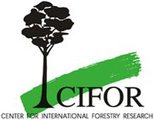CIFOR has released a working paper which examines policies for REDD+ benefit-sharing in 13 countries.
The publication aims to provide a global overview, comparative analysis, and profile of five types of REDD+ benefit-sharing mechanisms.
 9 May 2013: The Center for International Forestry Research (CIFOR) in Bogor, Indonesia, has released a working paper that examines policies for Reducing Emissions from Deforestation and Forest Degradation (REDD+) benefit-sharing mechanisms in 13 countries. The publication aims to provide a global overview, comparative analysis and profile of five types of REDD+ benefit-sharing mechanisms.
9 May 2013: The Center for International Forestry Research (CIFOR) in Bogor, Indonesia, has released a working paper that examines policies for Reducing Emissions from Deforestation and Forest Degradation (REDD+) benefit-sharing mechanisms in 13 countries. The publication aims to provide a global overview, comparative analysis and profile of five types of REDD+ benefit-sharing mechanisms.
The authors analyze how rights are structured under REDD+, and how political and economic factors influence the design and setting of benefit-sharing mechanisms.
According to the authors, REDD+ is considered a promising mechanism for forest management and reducing emissions, but stakeholders still face unresolved questions related to REDD+. The working paper suggests the issue of benefit-sharing mechanisms has, in particular, generated international attention of communities and policymakers, and that benefit-sharing mechanisms will be integral to ensuring REDD+ efforts are effective, efficient and equitable.
The working paper examines five existing benefit-sharing mechanisms for REDD+ and forest management: fund‐based approaches; market‐based instruments; forest concessions; access and benefit sharing; and community forestry. These approaches are examined in 13 countries: Bolivia, Brazil, Burkina Faso, Cameroon, Democratic Republic of the Congo, Indonesia, Lao PDR, Mozambique, Nepal, Papua New Guinea, Peru, Tanzania and Viet Nam.
In the 13 countries, the authors found two particularly prevalent views on benefit-sharing and equity: that ‘benefits should go to those with legal rights’ and that ‘benefits should go to those incurring costs.’ They did not find a prevalent view that ‘benefits should go to low-emitting forest stewards,’ a view that, the authors note, is often prioritized in international discussions of REDD+ benefit sharing.
The working document also discusses risks involved in benefit-sharing mechanisms, and makes recommendations for mitigating these risks. The authors argue that to ensure legitimacy and acceptance of REDD+, benefit-sharing mechanisms must be designed and implemented in an inclusive and equitable way that makes possible effects clear.
CIFOR is a member of the Consultative Group on International Agricultural Research (CGIAR). [Publication: Approaches to Benefit Sharing: A Preliminary Comparative Analysis of 13 REDD+ Countries]